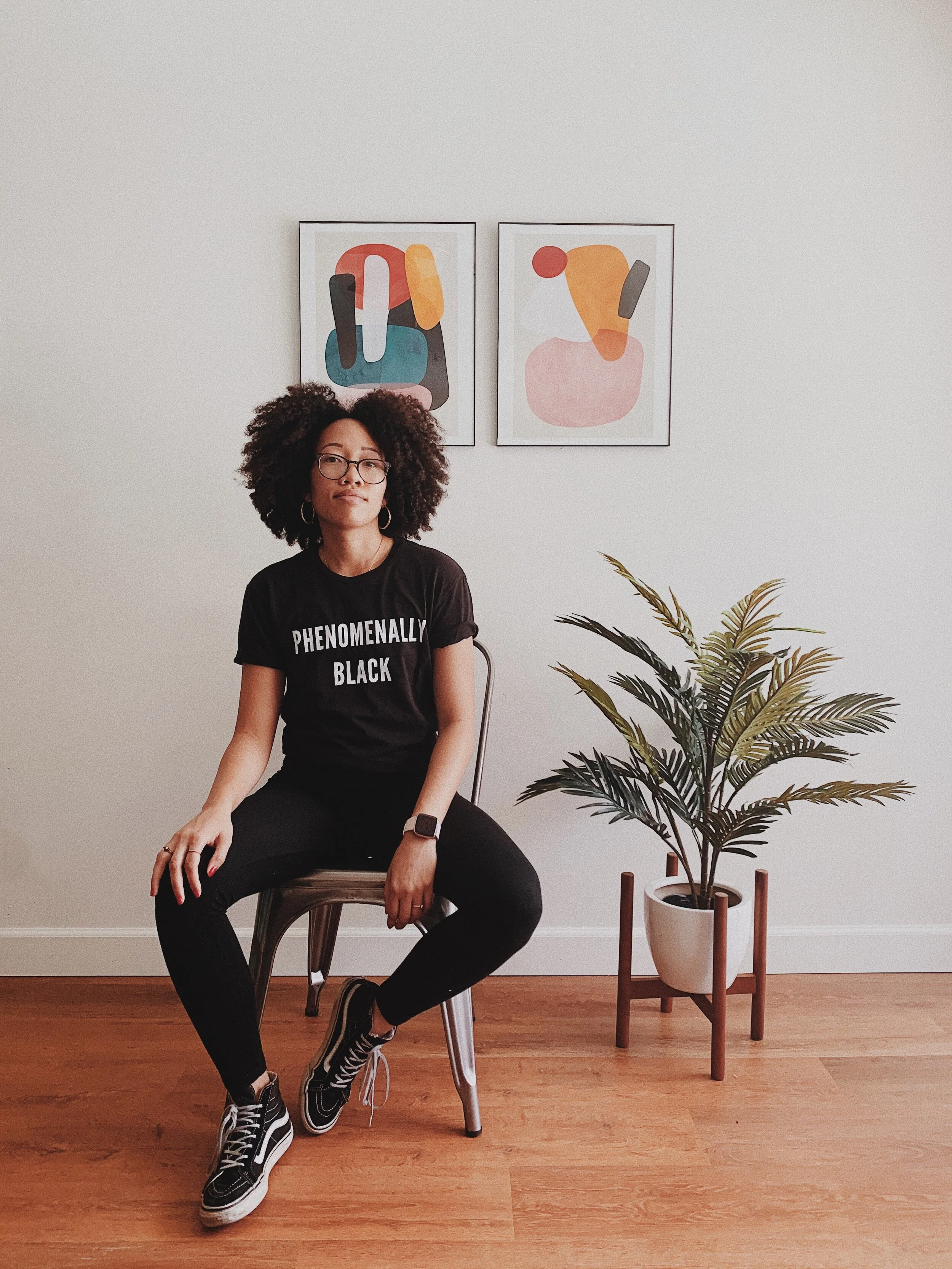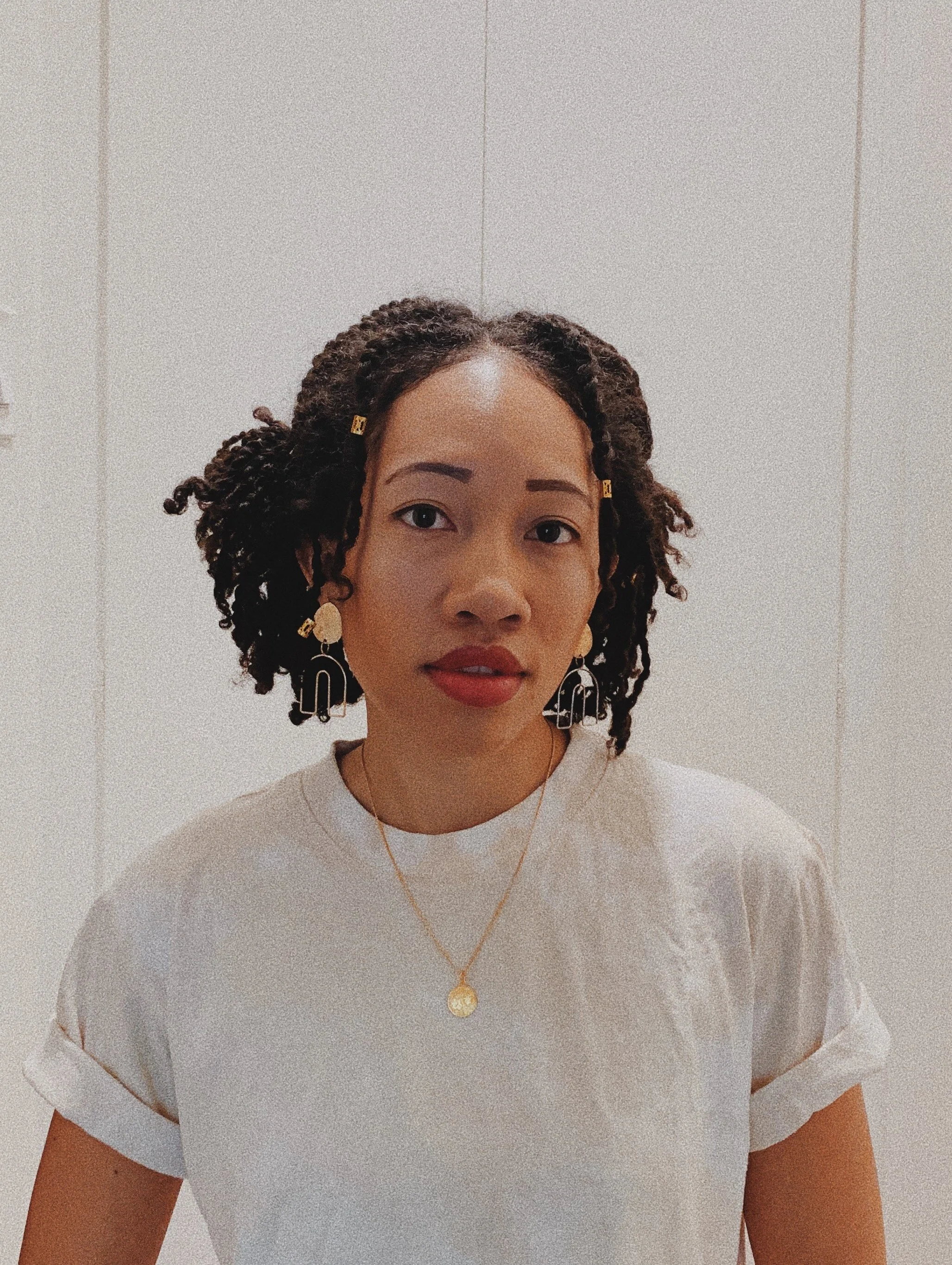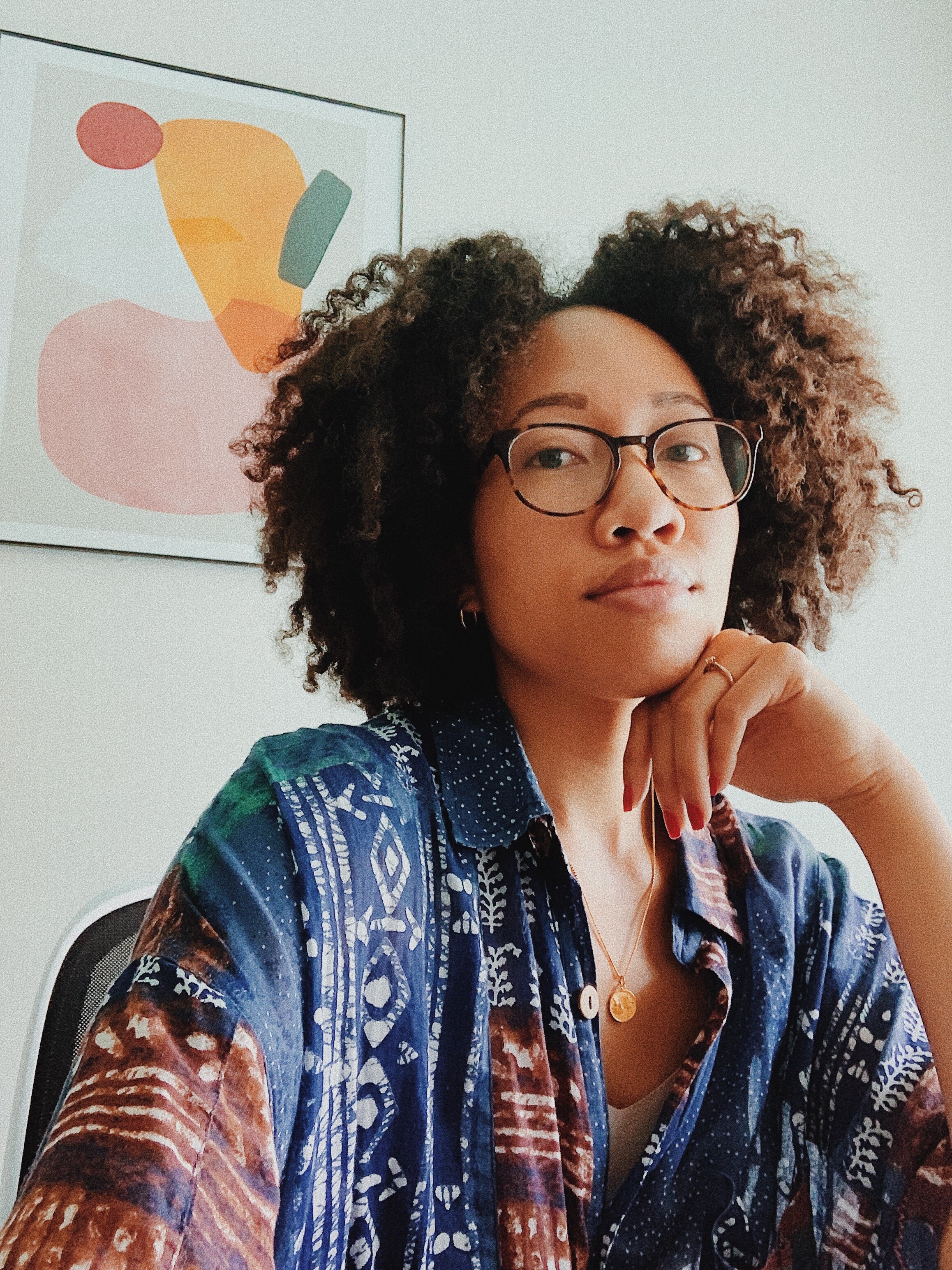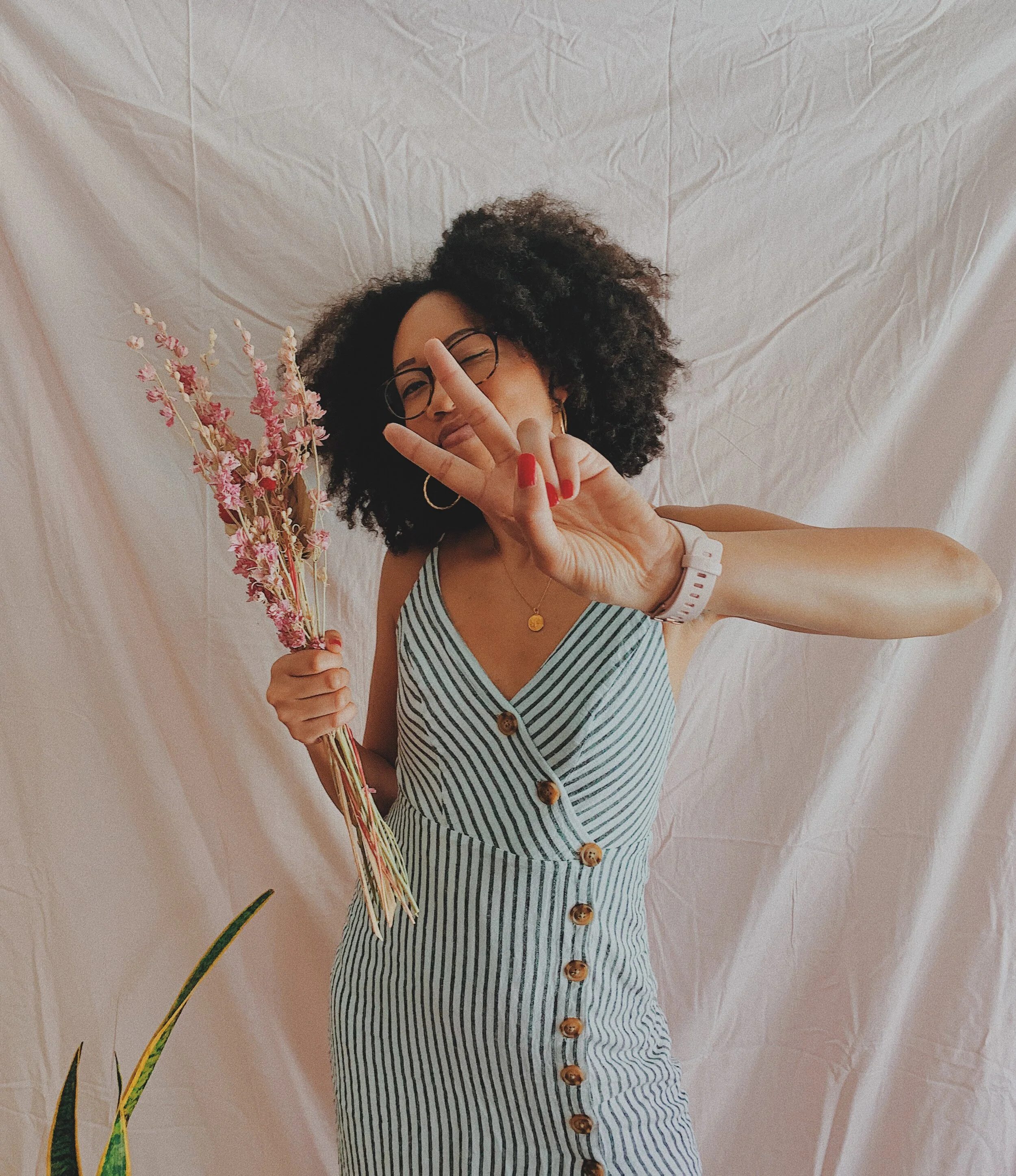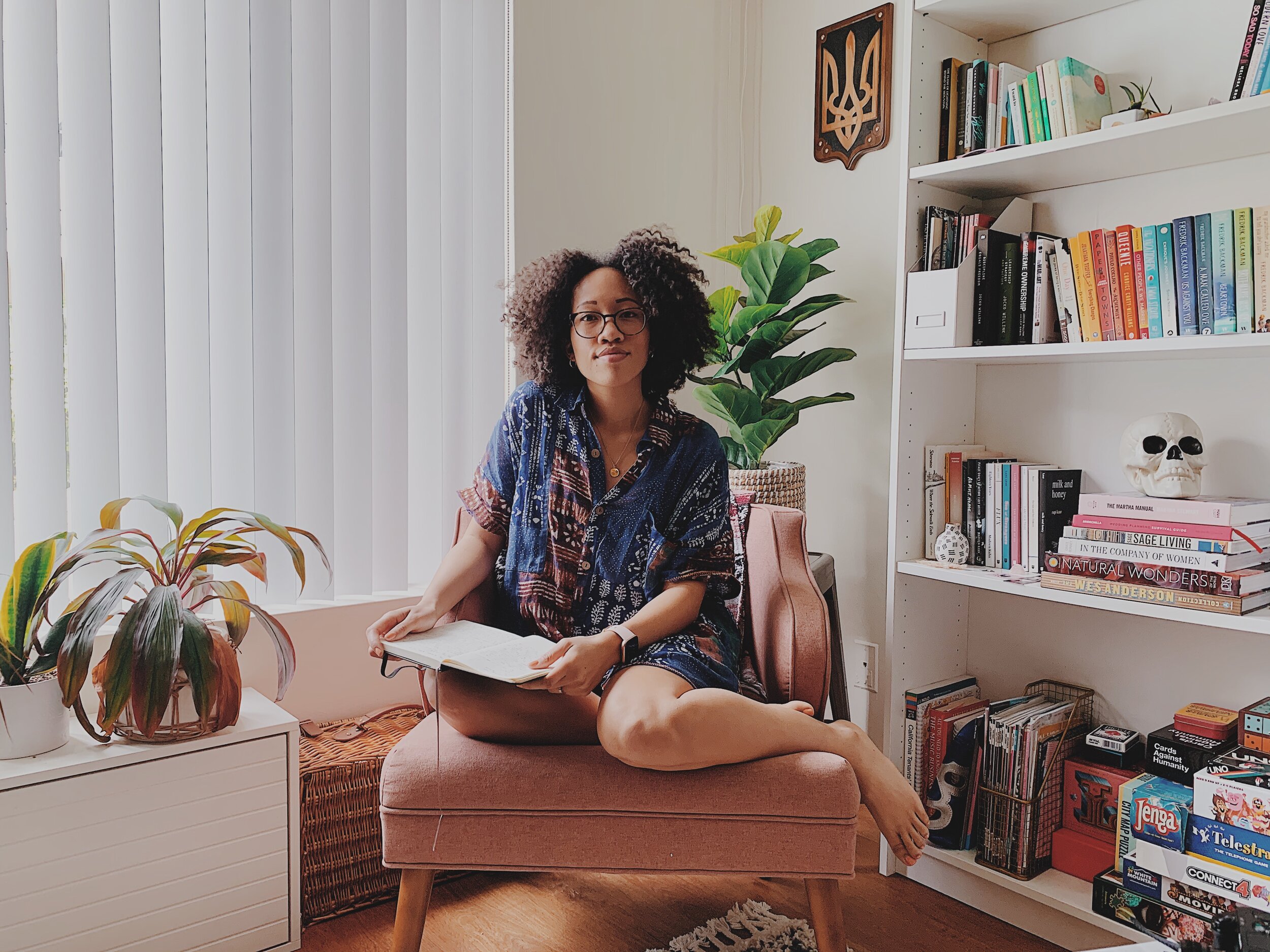Interview with Jenay Ross
Introduce yourself!
Hi! My name is Jenay Ross, and I am a poet and content creator living in Los Angeles with my fiancé. I love to create thoughtful and impactful content that inspires people to heal, change, and grow. For my 9-to-5, I work on the influencer marketing team for a well-known subscription box service, so you could say I have a love for both storytelling and marketing. I also graduated from the University of Southern California in 2014 with a degree in Print & Digital Journalism and Music Industry and have a professional background in artist management, event production, and brand partnerships.
Your poetry is incredibly honest, and your authentic storytelling voice shines through beautifully. When did you first fall in love with writing as an art form, and how has your writing style evolved over the years?
I loved writing as a kid, but my relationship with it became more serious in high school when I discovered the school newspaper and blogging. Being the editor of my high school newspaper developed my love for storytelling and designing layouts and led me to earn a degree in journalism. Blogging became a way for me, an introvert, to better express myself and share my own stories, introspection, and creativity.
I’ve always had a love for poetry, and it became a bigger part of my life as an artistic expression in 2016. I had a lot of dark moments and anxiety in my early and mid-twenties, and writing poetry helped me process my feelings. Compared to my past journalistic writing or long diary-like Tumblr entries, poetry has helped me hone my writing skills to be impactful, purposeful, and precise within a shorter form. My poetry also tends to pull inspiration from nature a lot. Metaphors involving plants, flowers, and their growth are so relatable to me.
You are the creator, writer, and designer of your own digital zine called Thank You For Being Here. How did the zine come to be, and what urged you to display your poetry in that particular format?
“Instagram poetry” has become an increasingly popular way to publish work, and I love that it has contributed to the rise of modern poetry. But the community feels extremely saturated, and it can be difficult to stand out, so I wanted to find another way to package and share my work. As someone who loves magazines and designing layouts, creating a zine felt like the right move for me. Self-publishing each issue of TYFBH digitally instead of as paper issues allows me to make it super accessible and easy to distribute.
What do you find the most fulfilling about writing? The most challenging?
The most fulfilling part of writing is the exploration and self-reflection that is involved. I learn so much about myself when I write, and it’s very healing. Writing also allows me to tell my story in my own words instead of leaving my life open to other people’s assumptions. The most challenging aspect of writing is being my own worst critic because it creates a lot of self-doubt which gets in the way of progress. Negative self-talk is never pleasant and often not helpful. I constantly have to remind myself to give myself more grace and kindness. Another challenging part is to develop the discipline to stick to a writing schedule. Life is so distracting, sometimes, haha.
As a Black and Chinese woman, has your mixed identity ever been difficult or frustrating for you, and if so, how have you reconciled those feelings?
Oh yes. Definitely. Long story short, my parents divorced before I was born, and I only grew up with the Chinese side of my family, so sometimes, especially as a child, I didn’t feel “Black enough” or “Chinese enough.” I was pretty self-loathing when it came to my naturally curly, coily hair, and often felt like I didn’t fit into either one of my cultures. It took a lot of unlearning and learning to get past this. When I stopped caring so much about what others thought of me, I learned to accept and love myself for who I am and all the amazing qualities I gained from both of my races.
How has your identity influenced your writing?
I used to write a lot about guys I dated that hurt my heart. And while I still do that, I now focus more on writing about navigating my experiences with my identity, anxiety, relationships, and personal growth. This is reflective of what impacts me the most as I approach turning thirty and become much more intentional with how I live my life.
Do you have any advice for fellow mixed Asian/Black Asian womxn writers?
Don’t water down your story or voice. Don’t be afraid of people not understanding you, they’ll learn from your words. Write what feels authentic, cathartic, and/or fun for you. Never be afraid to speak up. Remember, everyone’s story is different, and yours matters.
Along with poetry, you also have a blog where you write about everything from travel diaries to book recommendations. How do blog/social media type posts and poetry compare and contrast in terms of writing? Do you find that you are in different moods when you’re writing in different styles?
While my poetry is a little more cryptic and “poetic” (for lack of a better term, haha), my blog and social media posts are written in the same way as how I speak. The language is more direct so that you know exactly what I’m talking about and what I mean. There’s definitely some crossover in themes and styles, but the writing for my blog and Instagram are more casual. I’m much more serious when writing poetry and usually need to be in seclusion to concentrate on each piece.
What pieces of art involving Asian womxn/artists have caught your eye lately?
I’ll list some of my current favorite Asian creators and artists! Steffi Lynn (illustrator and muralist), Cathrine Khom (founder of Local Wolves Magazine), Lang Leav (author), Jolene Ung (artist), Lucia Tran (founder of Her Studio), Yoyo the Ricecorpse (illustrator), Misako Envela (content creator), and Remi Ishizuka (health and fitness influencer).
Some of these ladies are also mixed race :)
What do you think are the biggest challenges facing Asian womxn/BIWOC today?
Having our work consumed in the mainstream and being seen as equals to our white peers. We have a history of being overlooked, undervalued, and underrepresented. With all that’s happening with our current uprising for Black equality, I think this is the first time I’ve felt more confident in real change for everyone.
What’s next for you? Any exciting new projects?
I’m working on writing my first book and hope to find a literary agent and publishing house that believes in it. Building a career as an author is a dream of mine that I never thought could be possible, but I want to give it my all to make it possible.
Jenay Ross is a poet, content creator, and influencer campaign manager residing in Los Angeles whose main agenda is to live a happy, healthy, and fulfilling life by living each day mindfully and with intention. Originally from a tiny town in the San Francisco Bay Area, she’s been a work in progress since 1992 with a passion for consistent personal development and writing relatable pieces of work to inspire healing, change, and growth.
Jenay has authored and designed four self-published issues of the poetry zine Thank You For Being Here and is currently writing her first book. Through her words, she aims to inspire others to live each day with intention, tackle traumas and hardship with a positive outlook, and be vulnerable and resilient.

